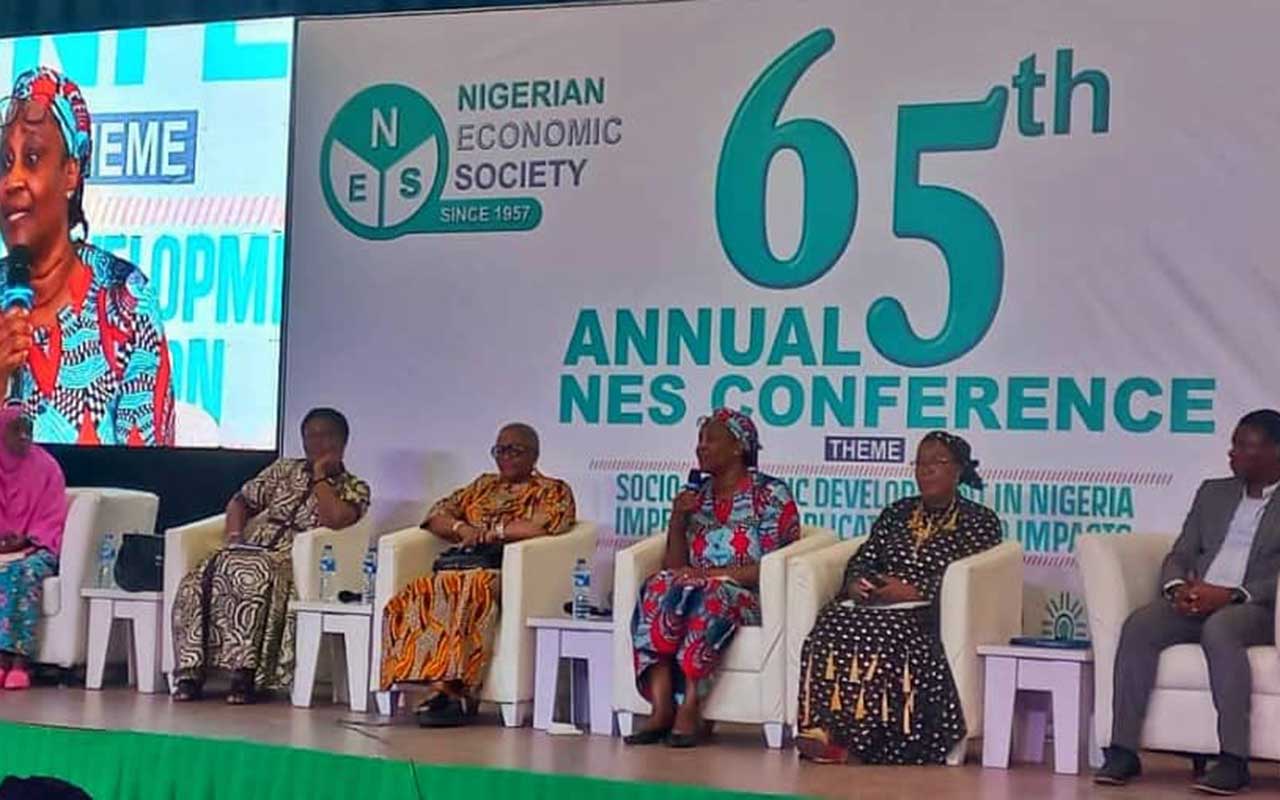 Nigeria will earn between $9.2 to 12.3 billion as profits from harnessing potential of women across various sectors of the economy such as agriculture.
Nigeria will earn between $9.2 to 12.3 billion as profits from harnessing potential of women across various sectors of the economy such as agriculture.
World Bank Gender Innovation expert and economists, Ayodele Fashogbon, said that the domestication and implementation of the national Women’s Economic Empowerment (WEE), policy would not only close the gender productivity gap but it will also boost Nigeria’s Gross Domestic Product (GDP), 5.3 percent.
Speaking at a panel discussion on ‘Economic Policy Shocks and the role of WEE Policy Domestication as a Framework for Responding to Household Poverty’ at the 2024 National Conference of the Nigerian Economic Society (NES), in Abuja,
“From where we stand, we know that empowering women to be as productive as men is very important and is a smart economics.
[ad]
“Our work in Nigeria has shown that if we are going to close the gender gap in agricultural productivity, in profit from entrepreneurship and in wage employment, Nigeria as a whole stands to gain between $9.2 -$12.3 billion annually and also gain a 5.3 per cent increase in our GDP,” he said.
Executive Director of the development Research and Projects Centre, (dRPC), Dr. Judith-Ann Walker, said that overarching reason for domesticating the National WEE policy at the sub-national level is to serve as a set of principles that guide actions and decisions among policymakers to achieve specific goals of improving the economic well-being of women at that level.
She said domesticating and implementing the national WEE policy allows for tailored strategies that address specific local needs and challenges while aligning with the broader national objectives.
Dr. Walker pointed that “The National Women Economic Empowerment Policy is Nigeria’s only policy instrument around which a strong economic case can be made for the targeting of vulnerable, at risk and disabled women as well as survivors of violence against-women.
“Statistics and research have shown that once a woman is empowered, then the possibility of being abused is reduced drastically.’’
She called for concerted efforts at all levels to ensure the implementation of the policy, arguing that the growing cases of GBV across the 36 states would be drastically reduced to the minimum if women are empowered.
Also speaking, representative of the Africa Enterprise Challenge Fund, Hauwa Umar observed that the importance of wee policy to have sustainability and to build all the structures together so that government will continue to support women in businesses and support them right.
She said “When women are empowered, businesses, the economy and communities also improve. A lot of women face Gender barriers but by promoting or domesticating the WEE policy, it will bring about the transformation we want to see because it is not just about empowering these women but transforming their lives.
“At the Africa enterprise challenge, we provide access to markets linkages, access technology, access to finance through grants, business solutions and access to information to these women.”
Earlier, Commissioner of Women Affairs, Akwa Ibom State, Dr Ini Adiakpan, explained that efforts had reached a conclusive stage in the domestication and implementation of the WEE policy as part of deliberate efforts of the state government to empower women and reduce cases of GBV in the state.
Professor Linda Kwon-Ndung from the National Institute for Policy and Strategic Studies (NIPSS), Kuru, Plateau state, pointed that the policy is not just an entry point for women in terms of improving their livelihoods but it also aligns with the Jakarta declaration that sees women’s economic empowerment as very necessary for ensuring economic growth and development.
[ad]


